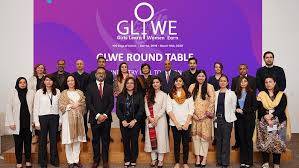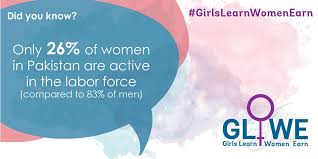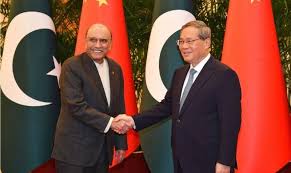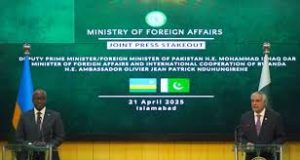Only 26% women part of labour force in Pakistan

Islamabad: A country with women constituting 49 percent of total population, only 26 percent are part of the labour force. With financial inclusion of women and girls, Pakistan could boostits GDP by 33 percent.
These were the remarks of speakers at a youth dialogue on‘Generation Equality: Realizing Women’s Rights for an Equal Future’ jointly organized by UNWomen Pakistan, the United Nations entity for Gender Equality and the empowerment ofWomen, and National University of Sciences and Technology (NUST) here on Friday.

The event was held to commemorate the 25th anniversary of the Beijing Declaration andPlatform for Action which was ratified in 1995 and endorsed by 189 Governments at the 4thWorld Conference on Women held in Beijing, China.
However, real change has beenagonizingly slow for majority of women and girls in the world and not a single country can claimto have achieved gender equality even in 2020. To review the progress made to date and identify challenges still to be addressed, UN Womenis bringing together the next generations of women’s rights activists with the gender equality advocates and visionaries who were instrumental in creating the Beijing Platform for Action.Collectively, these change makers of all ages and genders can tackle the unfinished business of empowering women through a new, groundbreaking, multigenerational campaign ‘Generational Equality’.
The event, organized under the Generation Equality campaign, started with opening remarksby Dr. Nassar Ikram, Pro-Rector Research, Innovation and Commercialization (RIC), NUST.He gave an overview of NUST, highlighting its innovative initiatives to draw more youngwomen into a technical field traditionally dominated by men, to provide them with a conduciveenvironment and to help them succeed. “Education is the most important mean to empowerwomen and girls and enable them to take forward the gender equality agenda,” he said.
His remarks were followed by a panel discussion which included Mr. Mohammad Naciri,Regional Director Asia and the Pacific, UN Women, who is on his first ever trip to Pakistan;Ms. Uzma Kardar, Chairperson Standing Committee on Gender Mainstreaming, ProvincialAssembly Punjab; Ms. Maya Zaman, successful Transgender Entrepreneur, and Ms. AqsaAjmal, alumna of NUST, Lexus Design Awardee. The panel was moderated by NUST facultymember Dr. Seemab Latif.
The speakers focused on the Beijing Declaration and importance of equal pay, equal sharingof unpaid care and domestic work, an end to sexual harassment and violence against womenand girls, health care services that respond to their needs, and their equal participation inpolitical life and in decision making in all areas of life. Mr. Mohammad Naciri said, “It was very unfortunate that we have been fighting for rights ofwomen since long. As the world will mark 25 years of Beijing Platform for Action, it’s time topush hard for advancing gender equality. Youth demands equal rights and equal opportunitiesfor all, and a world free from violence.” “Patriarchy is not only in the minds of men but also women. It’s essentially a social norm. So,we need to disassociate patriarchy from men. It is important to change the mindset, speak withnew generations without discrimination of men and women so that we could effectively dealwith preconceived notions built on gender discrimination.”
He appreciated that Pakistan wasone of the countries to have recognized transgender persons as a third gender and waslegislating to protect their rights. Mr. Mohammad stressed the need for gender responsive budgeting, planning and policies toensure there were health, education and civic services that respond to the needs of all women,men and transgender persons.
Ms. Uzma Kardar said, “Pakistan is committed to Sustainable Development Goals. With jointefforts of all stakeholders, awareness is increasing, and legislative process is going on in theright direction.” “To make sure we leave no one behind while moving towards SDGs, we must sensitizecommunities and change their mindsets. Youth can do this!” “Gender equality should comenaturally to youth.
When women get more medals in universities, why they get lessopportunities in practical lives?” She lamented while adding that she was confident that thenew generation will witness gender equality in their lifetime. Maya Zaman said economic empowerment of transgender persons was pivotal to end violenceagainst them. Aqsa said she opted for industrial design field as she wanted to fight maledominance in domain. Many students, faculty members as well as women and men across different professionsparticipated in the event.
Various questions raised by the audience were answered by thepanel members.
The event ended with the closing remarks of Ms. Aisha Mukhtar, Deputy CountryRepresentative UN Women Pakistan. “Inequality has become a norm. Everyone does not haveaccess to equal opportunities and rights. Women and transgender persons are morevulnerable to violence and exploitation. This needs to change. We need to challenge gendernorms. And we need to work together to accelerate gender equality actions,” she remarked.





